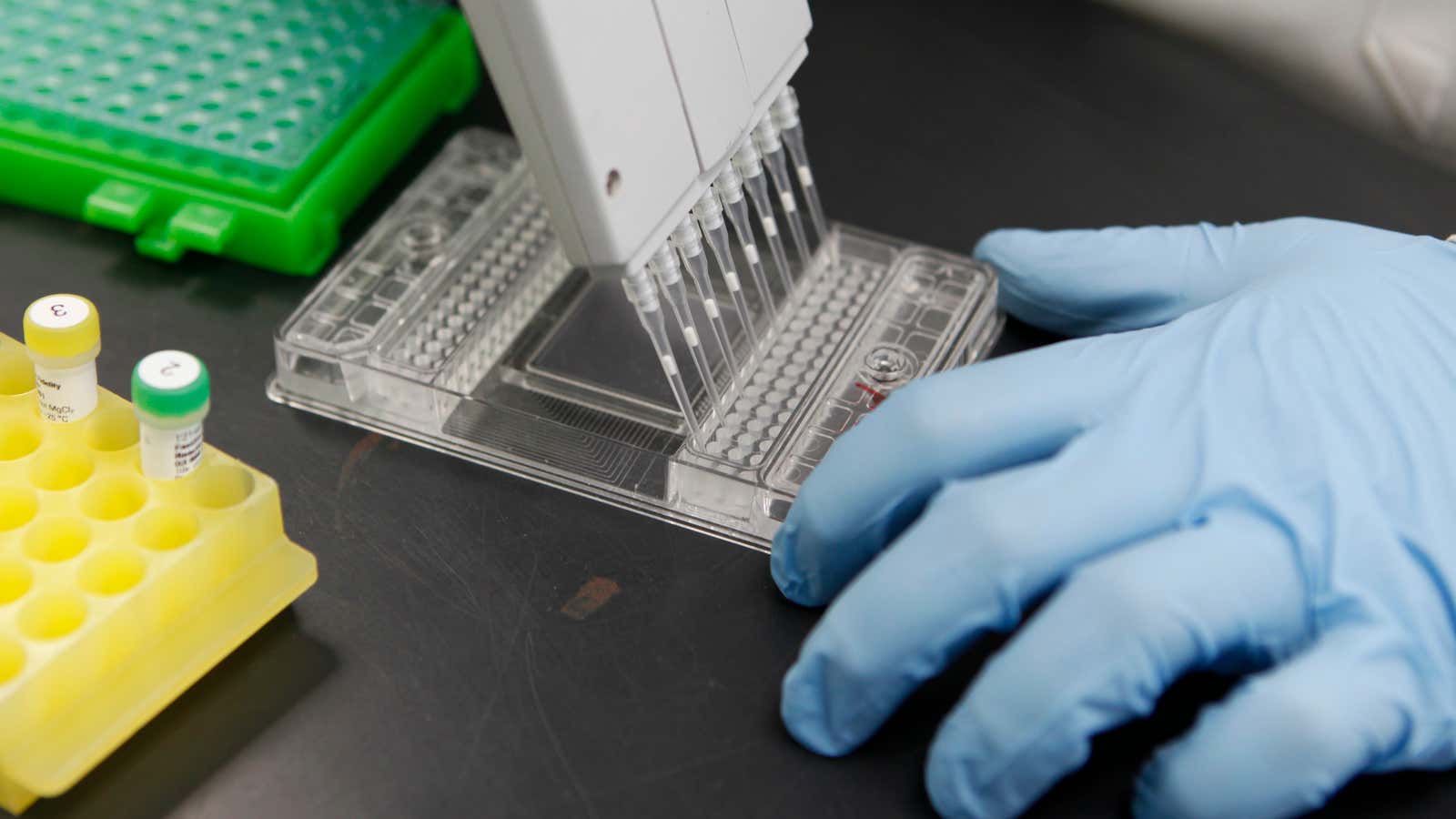The Food and Drug Administration (FDA) was wrong about the risks posed by genetic testing company 23andMe, according to commentary published in Nature.
In November, the FDA ordered that 23andMe stop revealing to customers their odds of contracting diseases without clinical evidence to support such conclusions. The FDA was afraid that patients would take results as diagnoses.
But Robert C. Green—a physician-scientist in genetics at Brigham and Women’s Hospital and Harvard Medical School—and Nita A. Farahany, a lawyer specializing in bioethics at Duke University, argue that the only thing we should require from 23andMe is honesty about the limits of their health testing. While the tests are often too inaccurate for consumers to consider them diagnoses, research shows that most customers will seek a doctor’s opinion before taking action, anyway. According to the authors’ research, 58% of 1,051 surveyed customers did nothing at all with their genomic results. Of the 42% who made health decisions based on the information, only 2% changed prescription drug regimens without consulting a physician. The majority of customers who made changes focused on diet, exercise, and vitamins.
Other research has supported those findings: A 2013 evaluation of personal genomics testing (pdf) found that while services like 23andMe aren’t particularly useful at this time (consumers, the authors write, would be better off spending the money on a gym membership) patients are unlikely to experience “distress,” based on results, and even less likely to change their behaviors because of them.
Green and Frahany think that the FDA made the wrong call. “The FDA invoked the precautionary principle,” they write, “acting on the basis of speculations of potential harm rather than reported harm.” While the FDA now classifies 23andMe’s testing—and any genomic service that provides interpretation in addition to genomic data—as a medical device, which puts it under their regulatory jurisdiction. The authors argue that making 23andMe answer to the FDA actually conflicts with the First Amendment of the US Constitution, which protects the rights of an individual to receive information. Such devices, they write, could “revolutionize health care by enabling individuals to make choices that maximize their own health.”
You can’t get better results—or better informed consumers—by hobbling the biggest consumer genomics company out there, Green and Frahany say. Instead, given that there’s no empirical evidence that personal genomics services cause harm, regulators should let 23andMe proceed.
About a week after being ordered by the FDA to halt its testing service, 23andMe announced that customers would only have access to ancestry and trait related results—hair and eye color, for example, instead of risk of breast cancer. Meanwhile, the company will seek FDA approval for health-related results. But while 23andMe was fairly reluctant to comply, other companies looking to put medical data in the hands of patients—Pixie Scientific’s urine-analyzing diapers, for example, and the at-home diagnostic tool Scanadu—embraced FDA compliance from the start. Whether the future of personalized healthcare lies in leapfrogging the FDA or working under its regulations remains to be seen.
